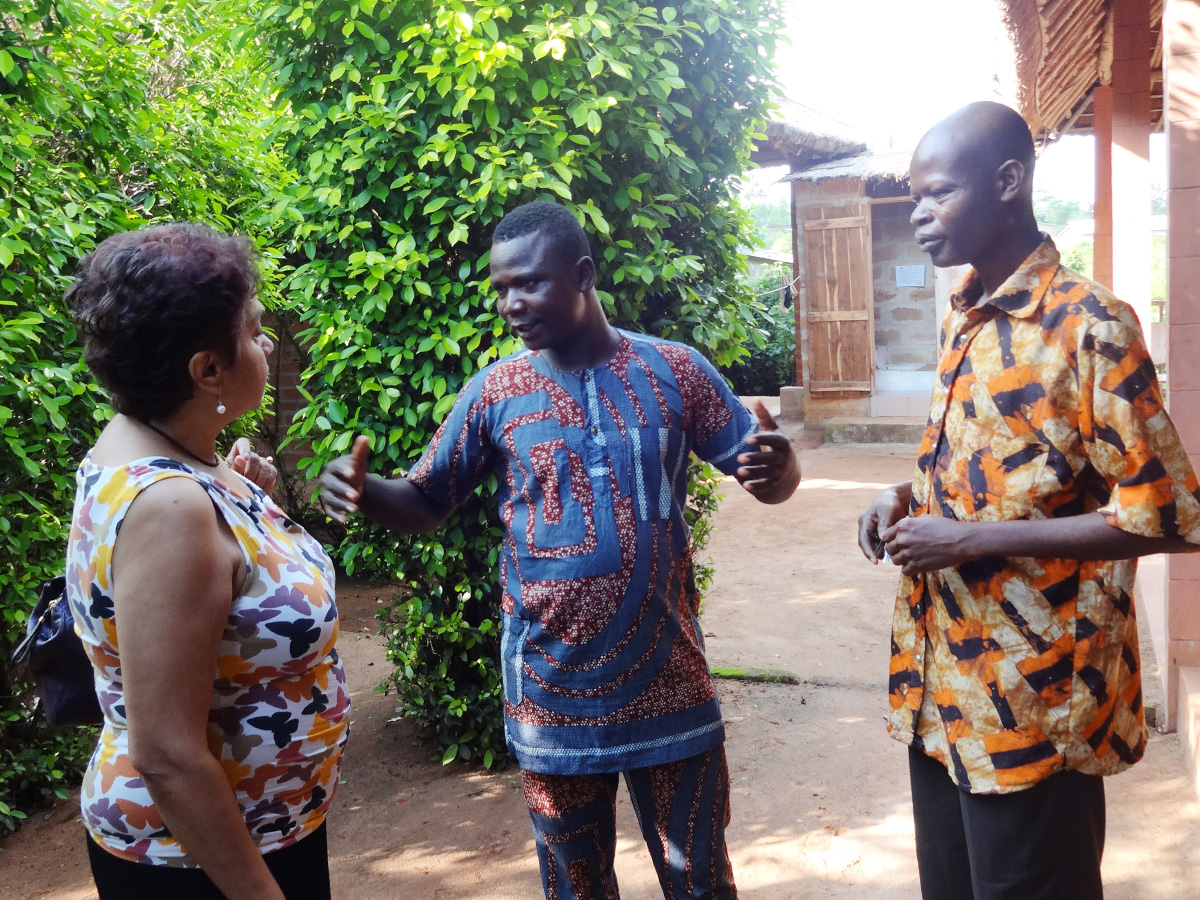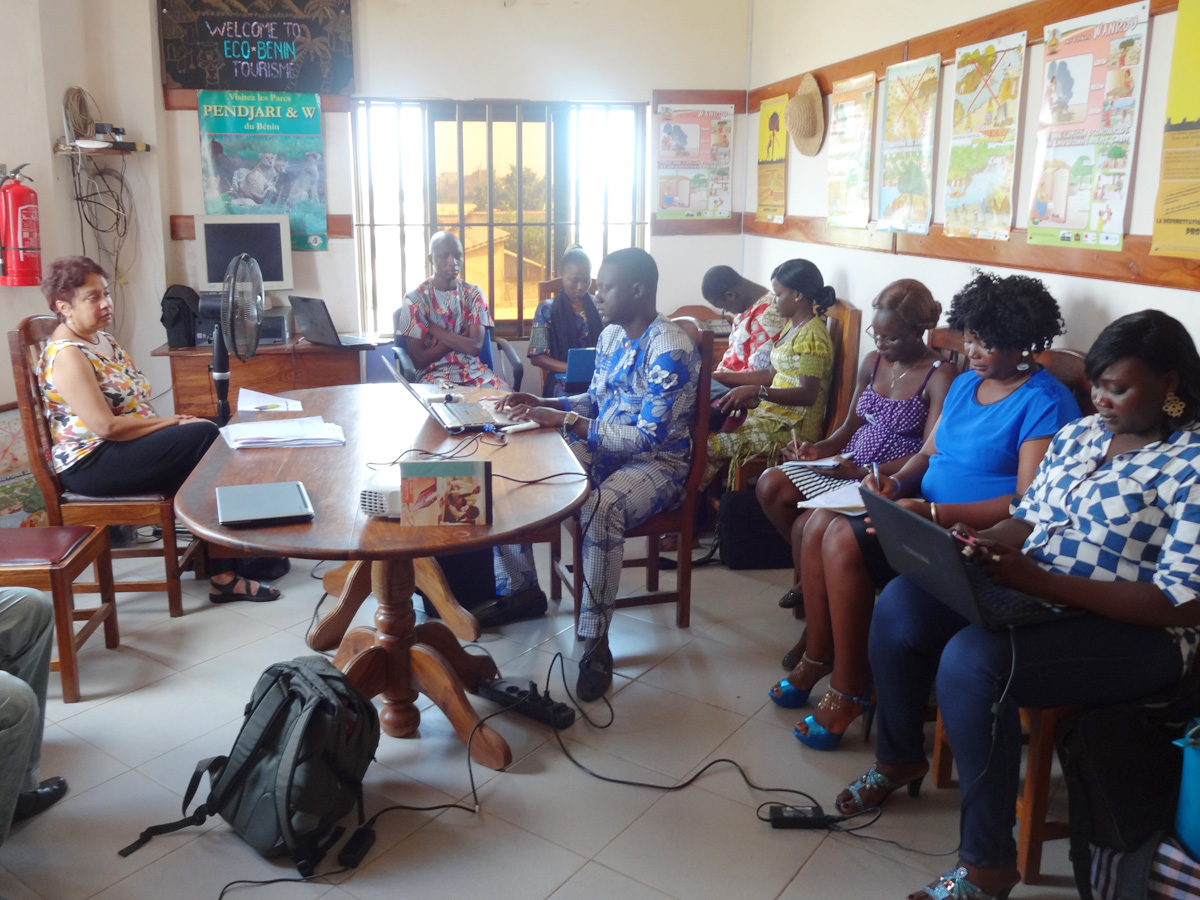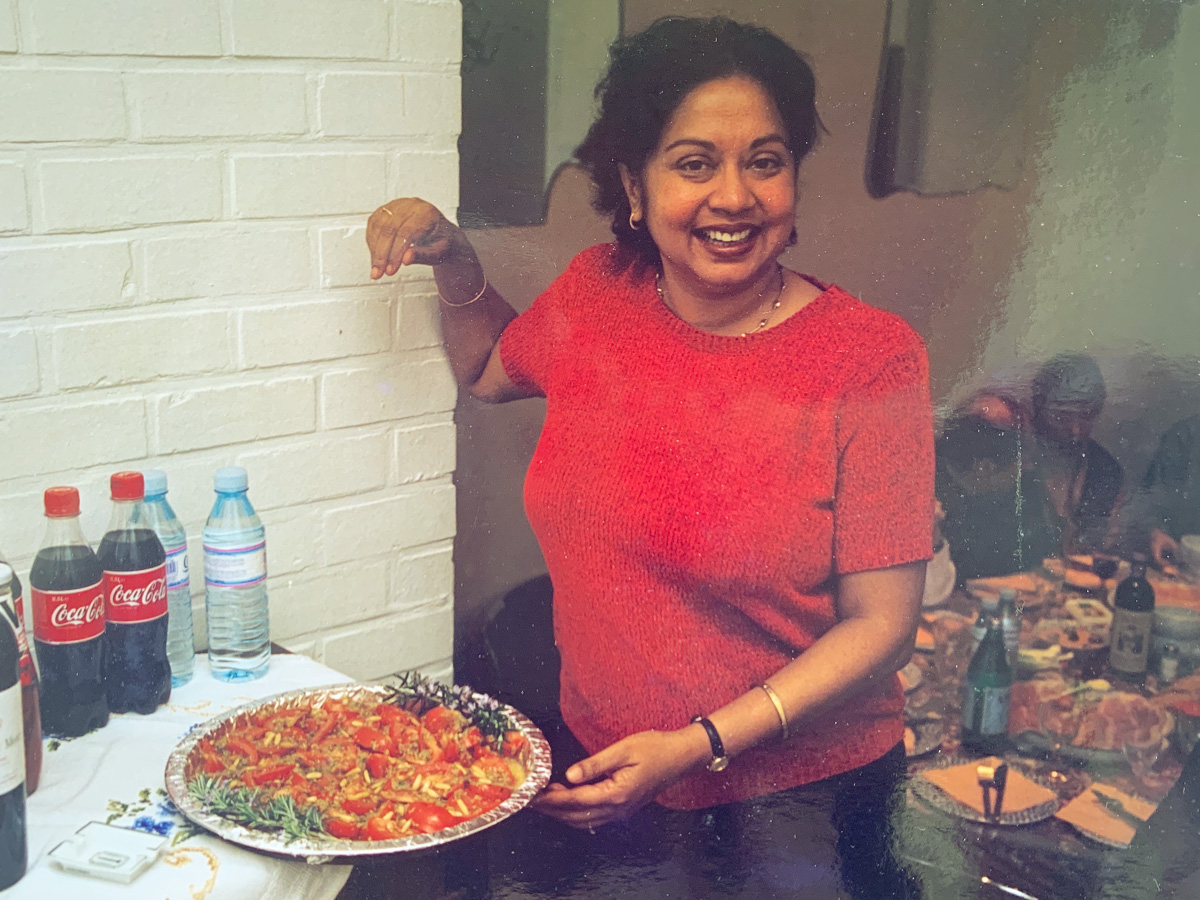André describes Debby as a creative, adaptable, and very optimistic individual.
He remembers the time when Debby returned home from a field study in a refugee camp. Despite witnessing the harsh realities there, she spoke about the glimmers of hope she had found in such adversity. Amidst their busy lives, André finds solace in seeing his wife prepare various dishes in the kitchen on weekends. He takes pleasure in the enticing aroma that fills their home and the delicious food.











